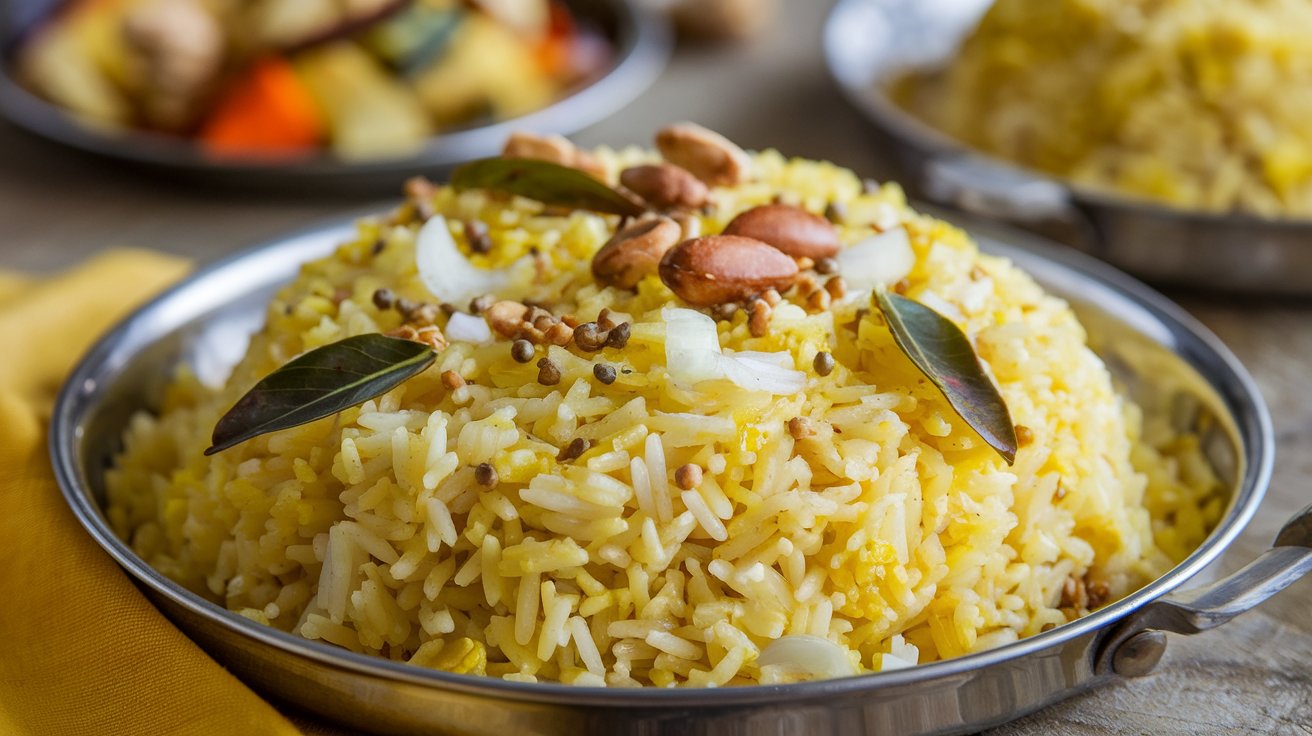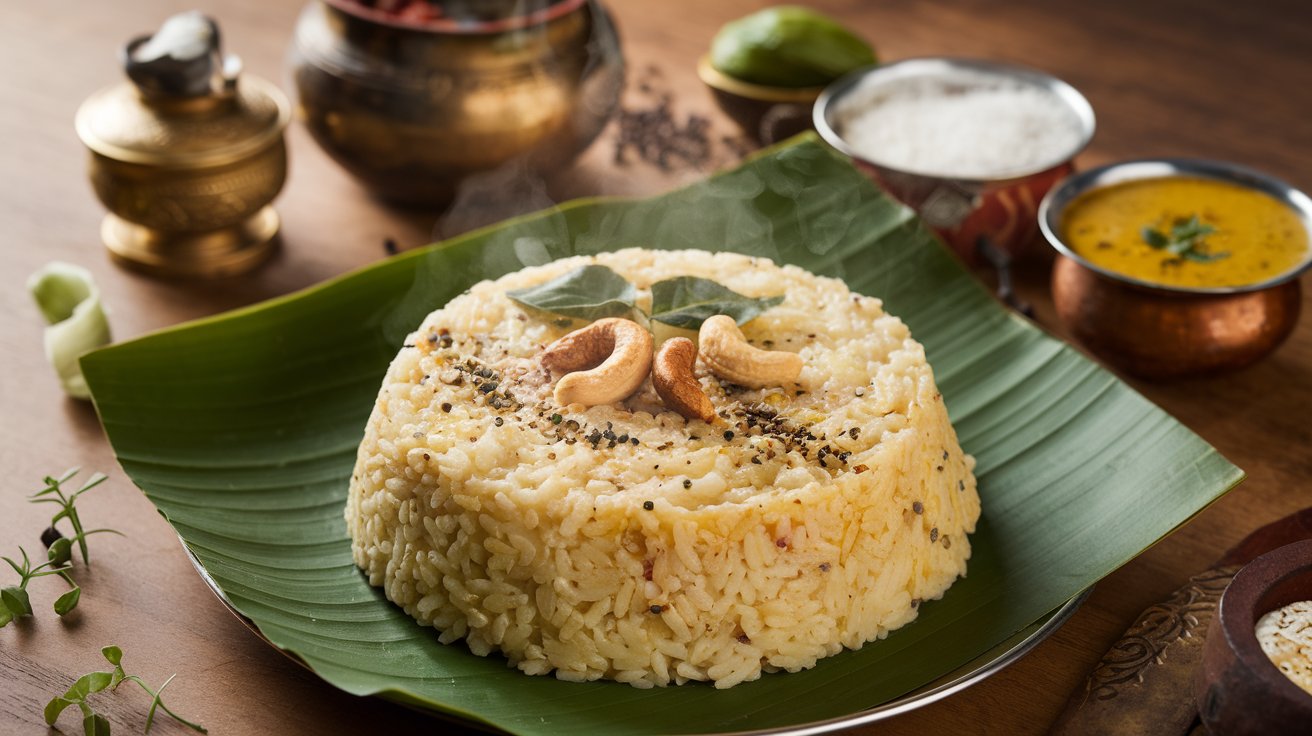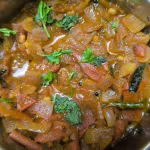

Join the Newsletter
Dive into quick, nutritious recipes, expert health tips, local food finds, and the latest in nutrition. Let’s explore healthier living together!
From Prayers to Sweets: Ganesh Chaturthi Rituals That Fill Hearts with Joy
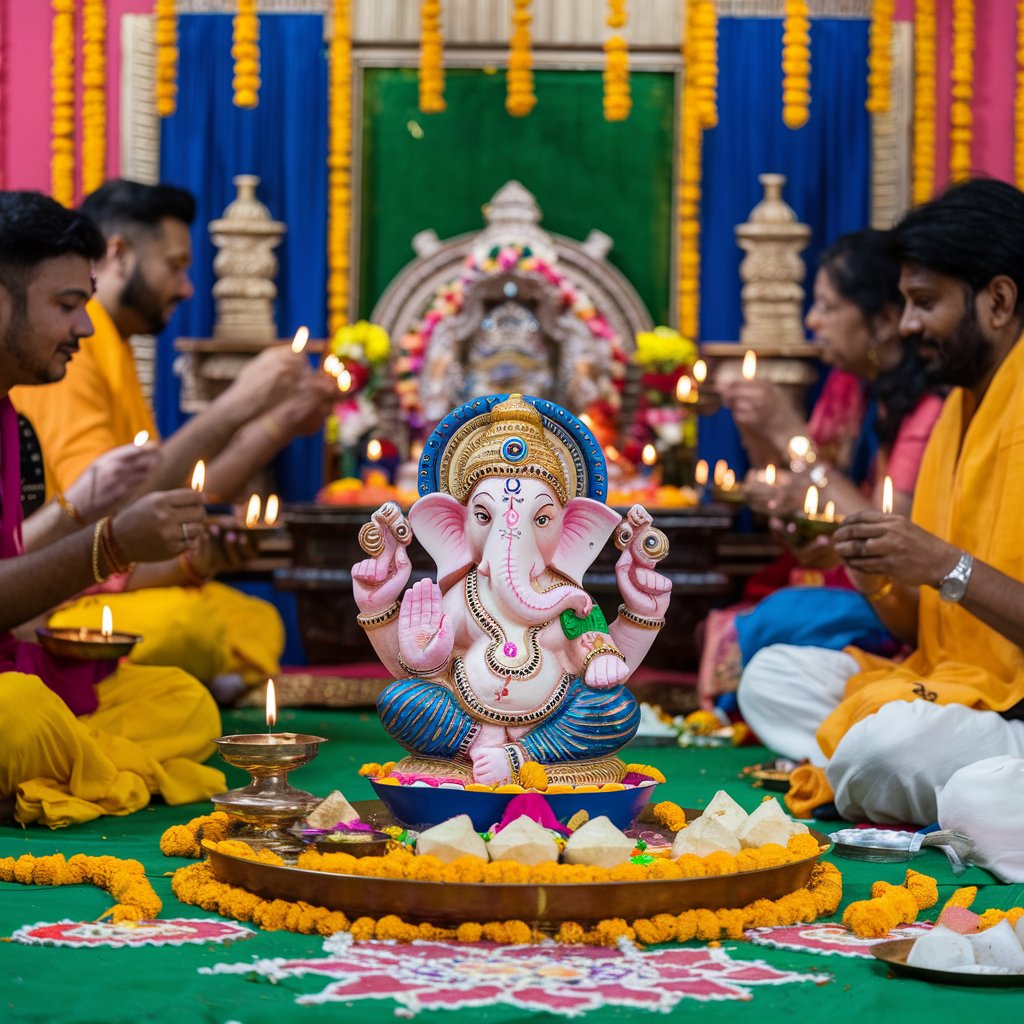
Affiliate Disclosure
Before reading this post, please be aware that some links in this article are affiliate links. This means that if you click on one of these links and make a purchase, we may earn a commission at no additional cost to you. We only promote products and services that we believe will be beneficial to our readers.
For more information, please read our full Affiliate Disclosure.
Introduction
Ganesh Chaturthi is a festival that fills the air with devotion, love, and celebration. Honoring Lord Ganesha, revered for clearing hurdles and bestowing prosperity, this festival is cherished deeply by countless people. Every ritual, from prayers to the offering of sweets, embodies a sense of joy and connection to the divine.
The History Behind Ganesh Chaturthi
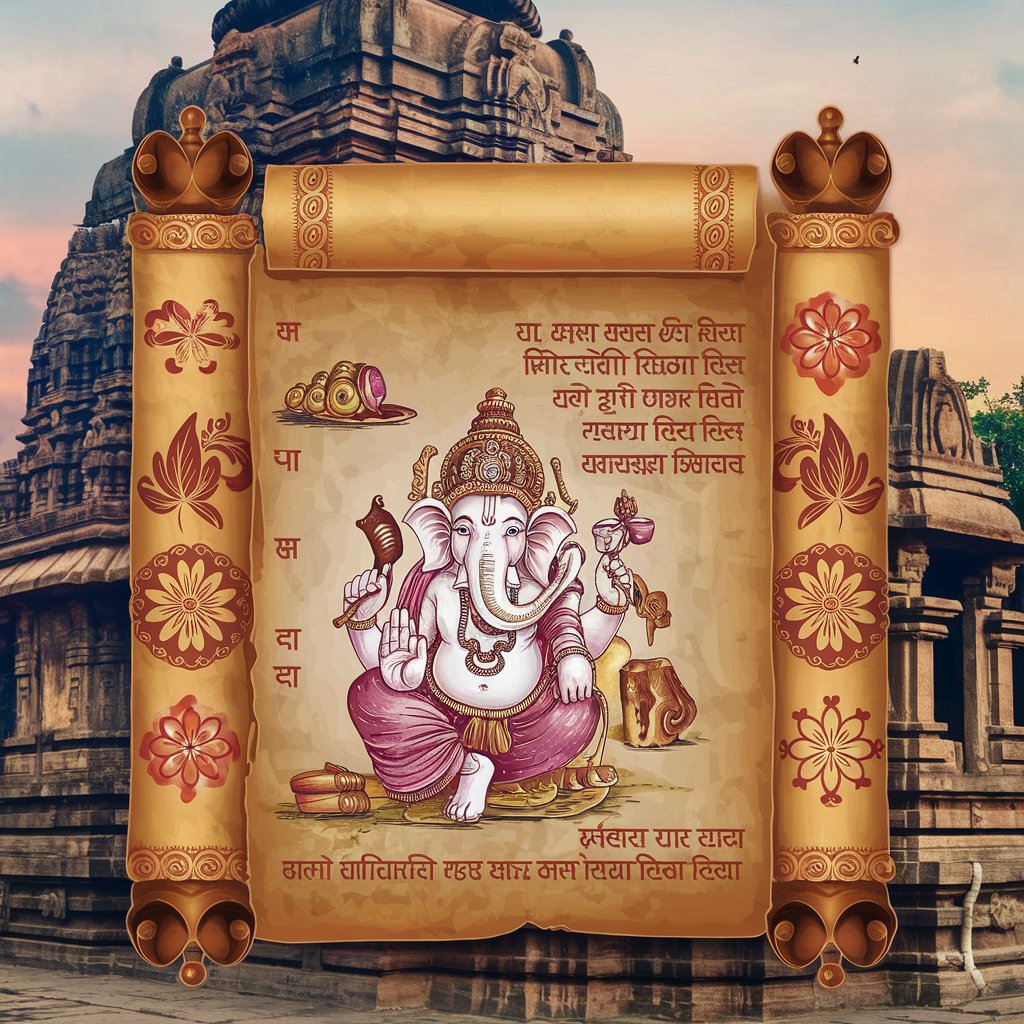
The origins of Ganesh Chaturthi go back to ancient times when people celebrated the deity in their homes. However, it was Lokmanya Tilak, a prominent figure in India’s independence movement, who transformed Ganesh Chaturthi into a public festival. He saw the celebration as an opportunity to unite people and spark a sense of unity against British rule. Since then, the festival has been widely celebrated across India, especially in Maharashtra.
The Spiritual Relevance of Ganesh Chaturthi
Ganesh Chaturthi is much more than a festival; it’s a time for spiritual reflection and seeking blessings. Lord Ganesha, with his elephant head and large belly, symbolizes wisdom, patience, and prosperity. His trunk, which is both strong and flexible, teaches us to be adaptable in life. Devotees turn to Ganesha to help them overcome life’s challenges, and they believe that his blessings bring new beginnings and success.
Preparing for the Festival
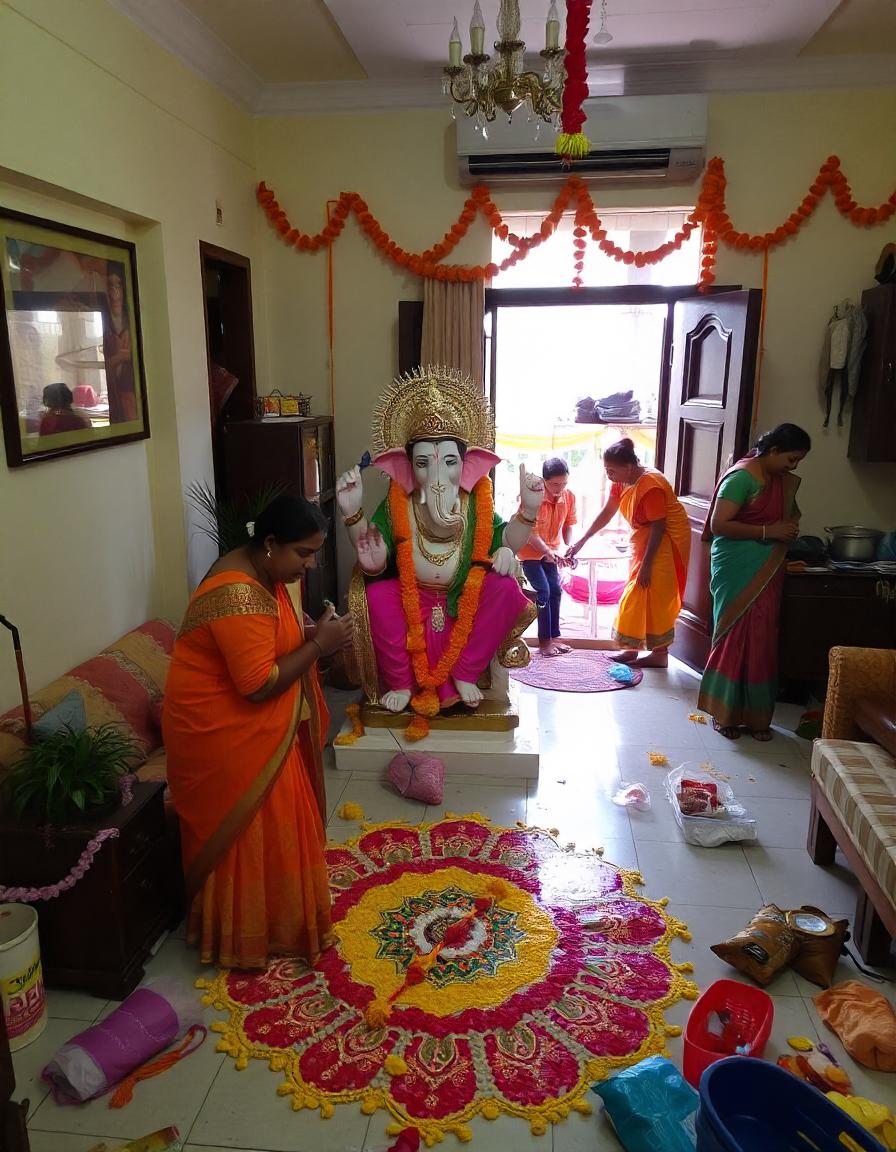
Preparation for Ganesh Chaturthi begins days in advance. Homes are cleaned and adorned with flowers, lights, and intricate rangoli designs. The central focus of the preparation is the Ganesha idol, which is chosen carefully and treated with utmost reverence.
Selecting the Right Ganesha Idol
In recent years, there has been a strong movement towards eco-friendly Ganesha idols. These idols, made from materials like clay, dissolve naturally after the immersion ceremony, reducing the festival’s environmental impact. The placement of the idol within homes or community pandals is deeply symbolic, representing the welcoming of Lord Ganesha’s presence into the lives of his devotees.
Ganesh Chaturthi Rituals
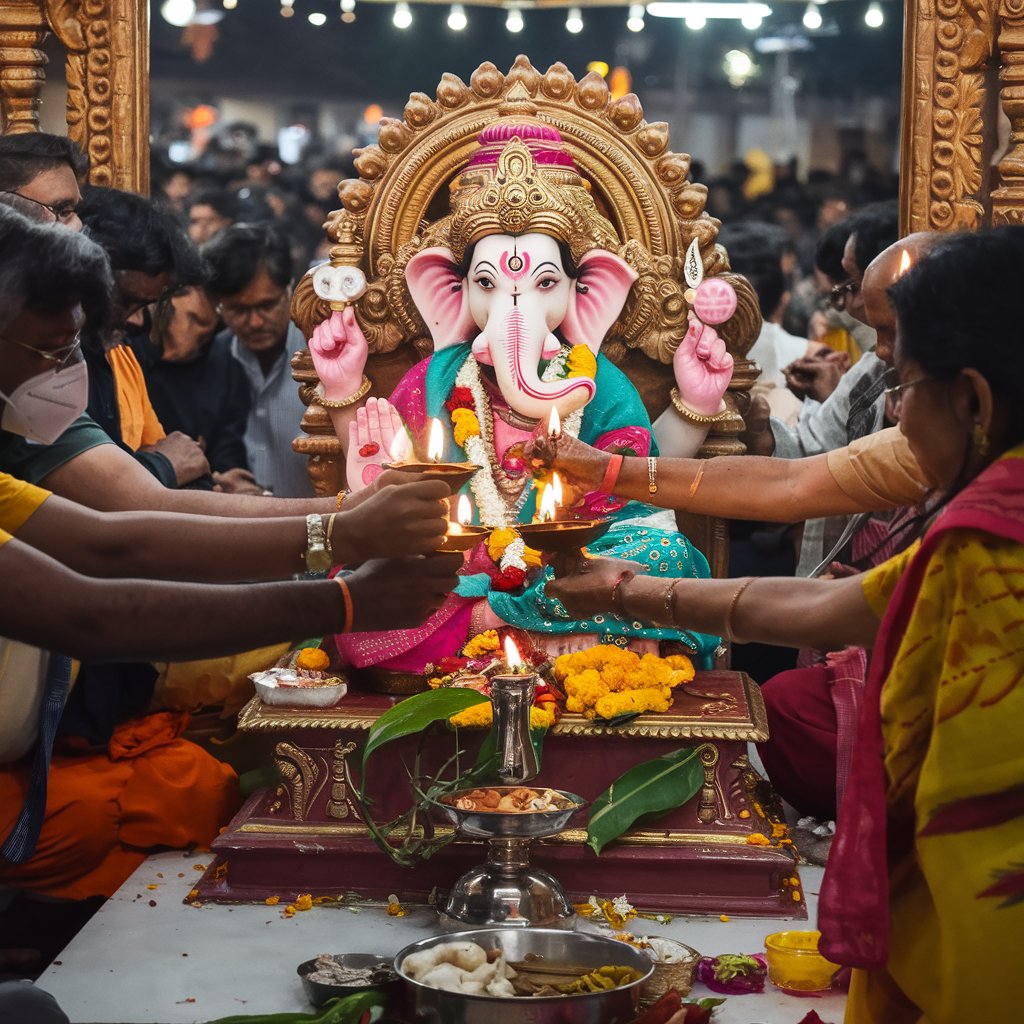
At the heart of Ganesh Chaturthi are its beautiful rituals, each filled with meaning. The Pranapratishtha, or the installation of the idol, marks the beginning of the festival. This is followed by daily prayers, aartis, and offerings that honor the deity.
The Daily Aarti
Aarti, a devotional prayer involving light, is a key ritual during Ganesh Chaturthi. Families gather to sing hymns like “Sukhkarta Dukhaharta,” praising Ganesha and asking for his blessings. The aarti ritual, performed in the morning and evening, fills the atmosphere with a sense of divine presence, binding family members together in devotion.
Offering Modaks and Other Sweets
One of the highlights of the festival is the offering of modaks, a sweet dumpling filled with coconut and jaggery, which is said to be Lord Ganesha’s favorite. These sweets not only symbolize the joy and gratitude of the devotees but also reflect the cultural richness of the festival. It’s common to distribute sweets among friends, family, and neighbors, further spreading the festive spirit.
The Role of Devotees in the Celebration
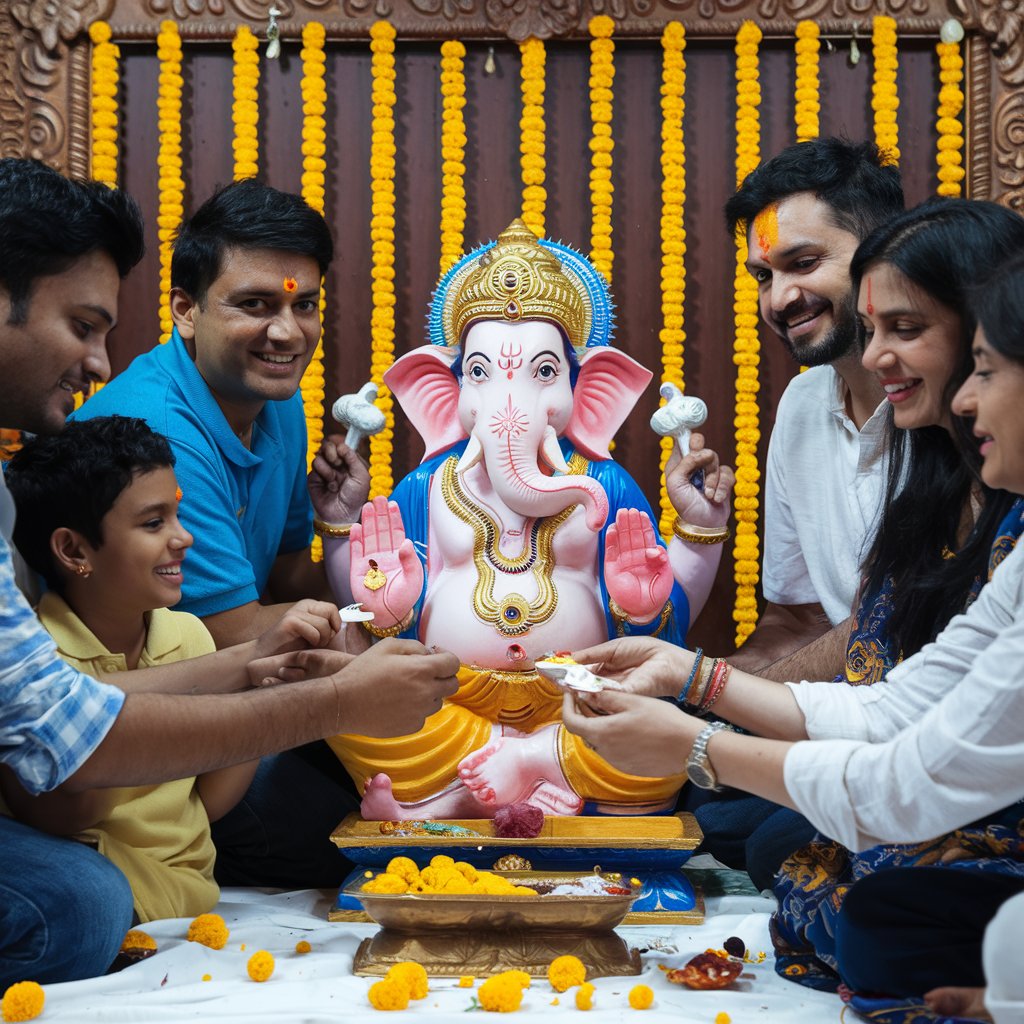
Ganesh Chaturthi thrives on the collective participation of devotees. Whether at home or in community spaces, the festival is a time for families and neighbors to come together in prayer, celebration, and unity.
Ganesh Chaturthi Processions
Processions, especially during the immersion ceremony, are a vibrant aspect of the festival. With music, dance, and enthusiastic chants of “Ganpati Bappa Morya,” these processions reflect the joy and devotion of the people. They are not just a display of religious fervor but also of the cultural unity that Ganesh Chaturthi fosters among diverse communities.
The Significance of Visarjan
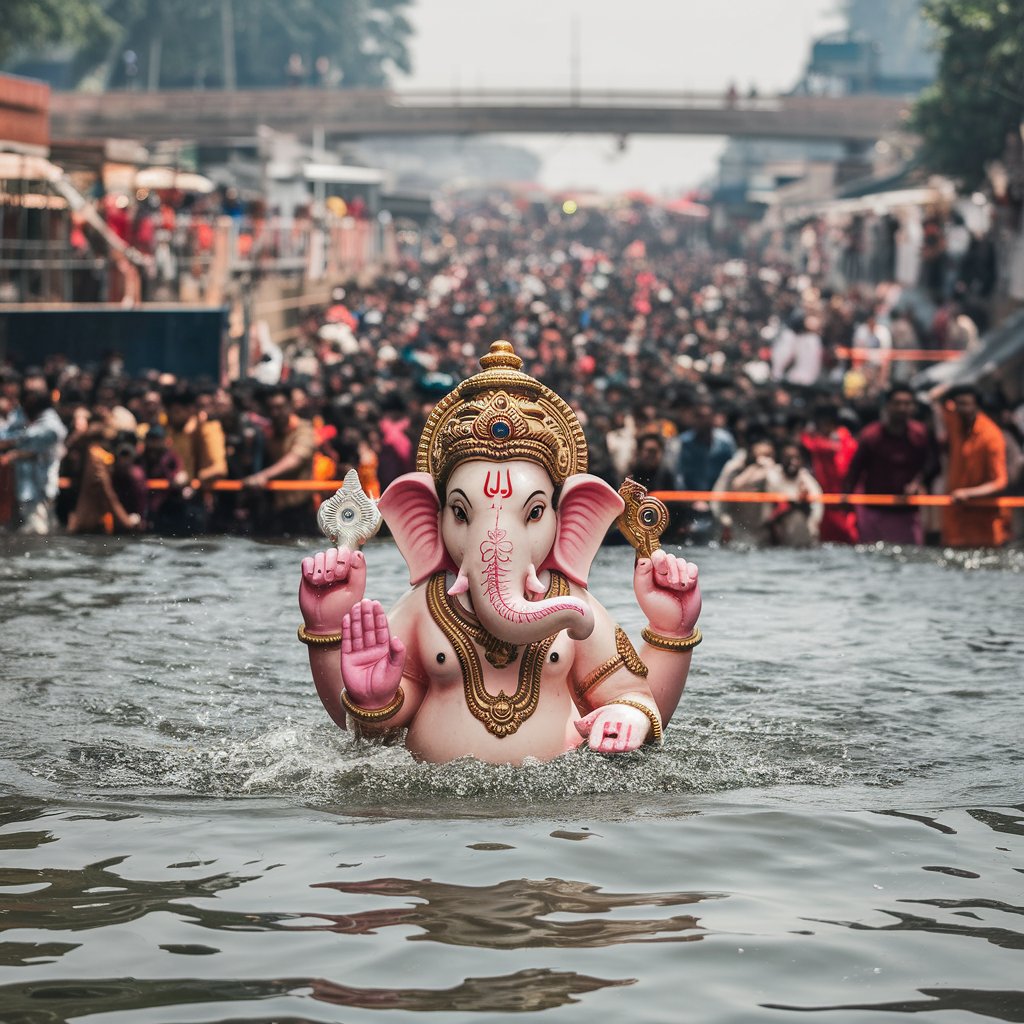
The culmination of Ganesh Chaturthi is marked by the Visarjan ceremony, where the Ganesha idol is immersed in a body of water. This ceremony represents the ongoing process of creation and dissolution, serving as a reminder to worshippers of life’s ephemeral quality. The emotional farewell given to Lord Ganesha is often accompanied by prayers for his return in the following year.
Eco-Friendly Visarjan Options
In light of growing environmental concerns, many communities are now opting for eco-friendly Visarjan practices. Artificial tanks and natural clay idols are becoming more common, ensuring that the immersion process has minimal impact on water bodies. This shift reflects a growing awareness of the need to protect the environment while still honoring religious traditions.
The Joyous Atmosphere of Ganesh Chaturthi
Beyond the rituals, Ganesh Chaturthi is a time for families to reconnect, share stories, and create lasting memories. The festival’s lively and joyful atmosphere brings people closer, and the shared devotion to Lord Ganesha strengthens emotional and spiritual bonds among family members and the broader community.
Celebrating Ganesh Chaturthi Across India
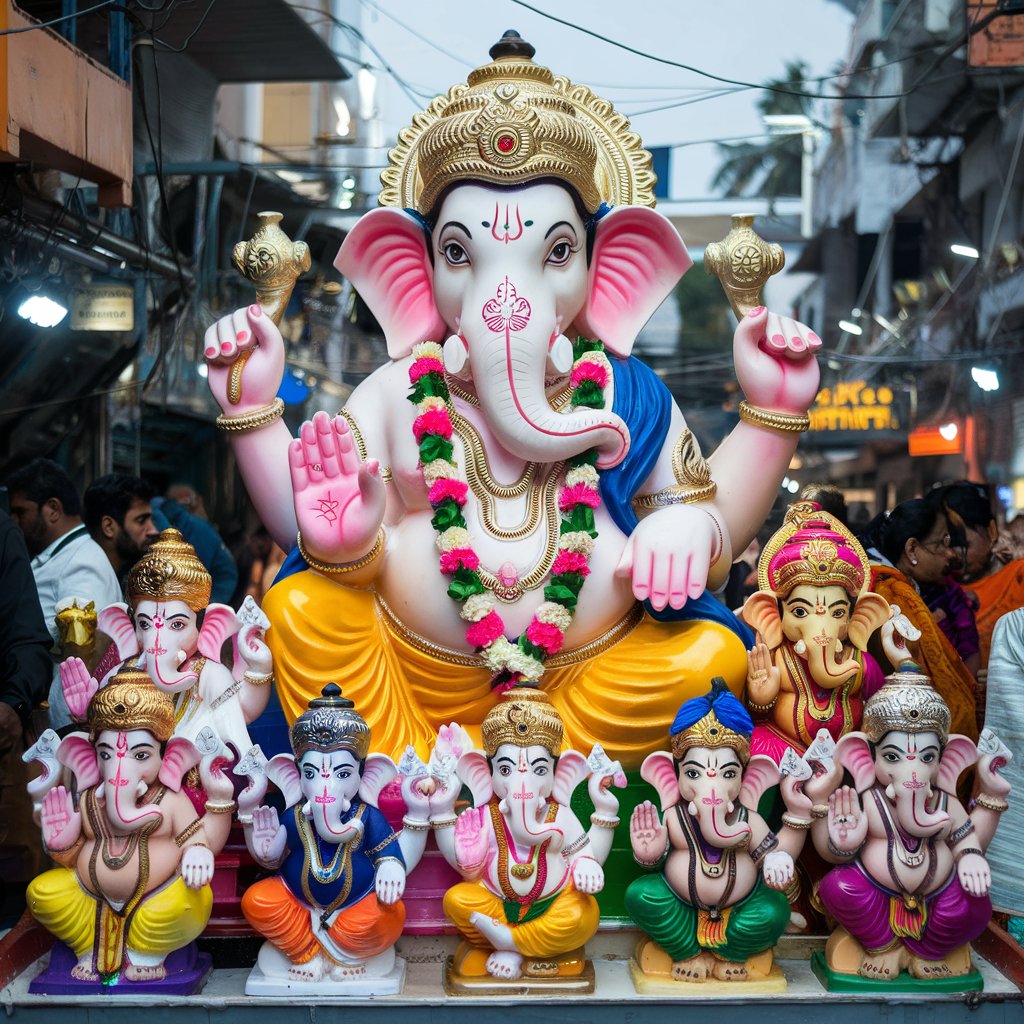
While Maharashtra is known for its grand Ganesh Chaturthi celebrations, the festival is observed with equal devotion in states like Tamil Nadu, Karnataka, and Goa. Each region brings its own unique flavor to the festival, from the style of idols to the traditional offerings made to Lord Ganesha.
Conclusion
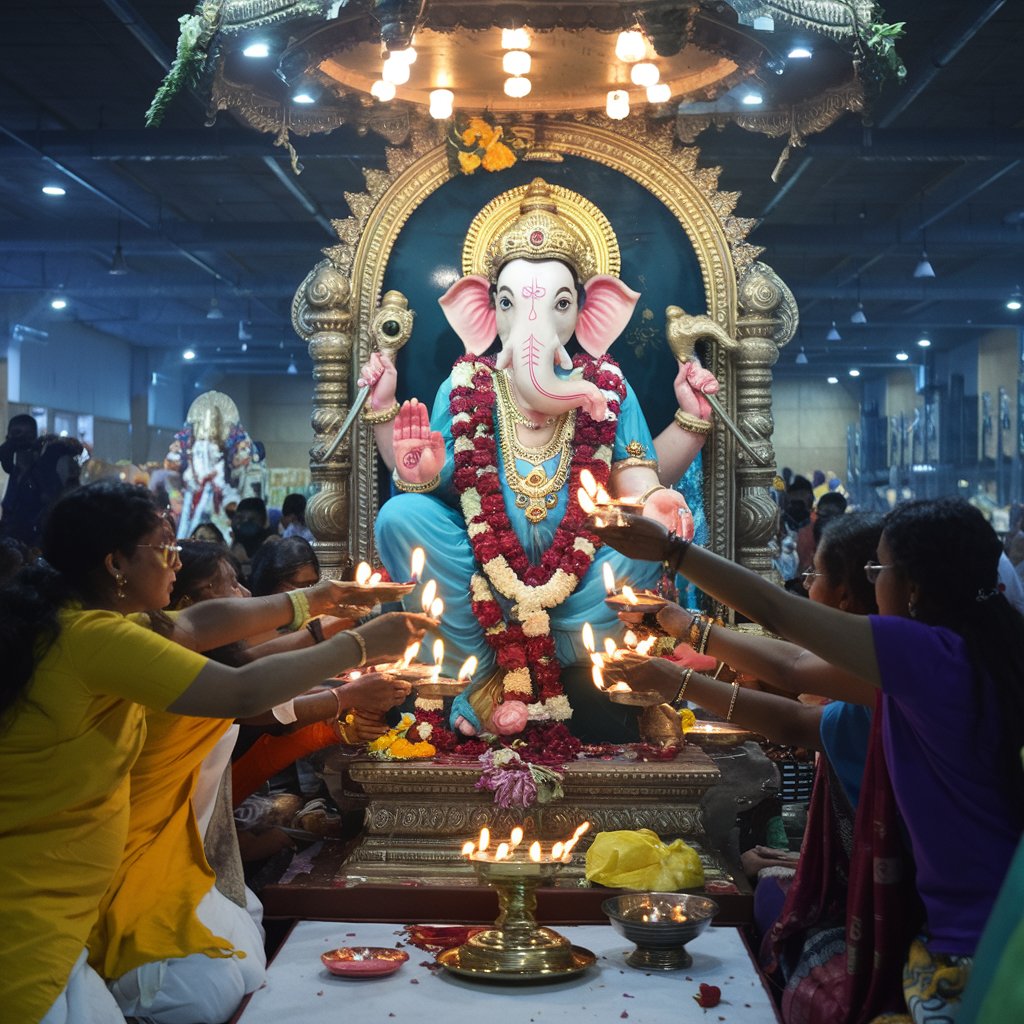
Ganesh Chaturthi is not just about rituals and ceremonies—it’s a festival that celebrates life, faith, and togetherness. Whether through prayers, modaks, or the emotional Visarjan, the festival fills the hearts of devotees with joy and devotion. As we continue to honor Lord Ganesha, let us also embrace eco-friendly practices to ensure that this cherished tradition is preserved for future generations.
FAQs
1. What is Ganesh Chaturthi all about?
Ganesh Chaturthi is a festival that celebrates the birth of Lord Ganesha, the god of wisdom, prosperity, and new beginnings. It is marked by prayers, rituals, and the immersion of Ganesha idols in water.
2. How do you conduct Ganesh puja at home?
To perform Ganesh puja at home, you need to clean your space, set up a Ganesha idol, offer prayers, chant mantras, perform aarti, and offer sweets, especially modaks.
3.What does the Visarjan ceremony symbolize?
Visarjan, or the immersion of the Ganesha idol, symbolizes the cycle of creation and dissolution, as well as the belief that everything in life is temporary.
4.How can you celebrate Ganesh Chaturthi in an eco-friendly manner?
You can opt for eco-friendly Ganesha idols made from clay, avoid plastic decorations, and choose artificial tanks for the immersion ceremony to minimize environmental harm.

Welcome to Merge Blog!
Dive into quick, nutritious recipes, expert health tips, local food finds, and the latest in nutrition. Let’s explore healthier living together!

I’m Divya Bharathi, the person behind MergeBlog. I’m a passionate food enthusiast sharing simple, nutritious recipes and tips for a balanced lifestyle. Join me on this delicious journey!
Divya Bharathi
SUBSCRIBE & FOLLOW
MUST-READ ARTICLES
Join the Newsletter
Dive into quick, nutritious recipes, expert health tips, local food finds, and the latest in nutrition. Let’s explore healthier living together!
